(VOVworld) - An early spring pilgrimage to the Buddhist sanctuary on Yen Tu Mountain in Quang Ninh province is popular with both Buddhists and tourists. Many like to climb to Dong (Bronze) Pagoda at the peak of Yen Tu Mountain, about 1,068 meters above sea level, to greet the sunrise of a new day.
Yen Tu Mountain in the Dong Trieu range of northeastern Vietnam is closely linked to the establishment of Truc Lam Zen Buddhism in Vietnam.
King Tran Nhan Tong (1258-1308) led the Vietnamese people to victory over the powerful Mongolian army of the Yuan Monarchy in two campaigns in 1285 and 1287. In the early 14th century he gave up his throne to his son Anh Tong, left his royal palace, and went to Yen Tu Mountain to lead an ascetic religious life. He founded the Truc Lam Zen sect and took the name Huong Van Dai Dau Da, which means “Great Ascetic of Fragrant Clouds”. Later he was called Truc Lam Dai Si.
Buddhist King Tran Nhan Tong ordered the construction of a complex of religious architectural works on Yen Tu Mountain in which to practice and teach the Buddhist tenets and dharma.
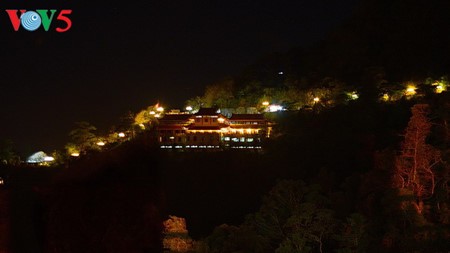 |
|
A track leads up the mountain. The cable car station is open from early morning to serve visitors. Cable cars make going to Yen Tu Mountain much quicker and easier than before.
|
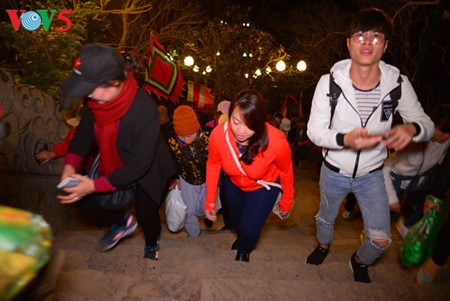 |
|
The cable car stops short of the top of Yen Tu Mountain. Visitors still have to walk a stretch of road to see everything.
|
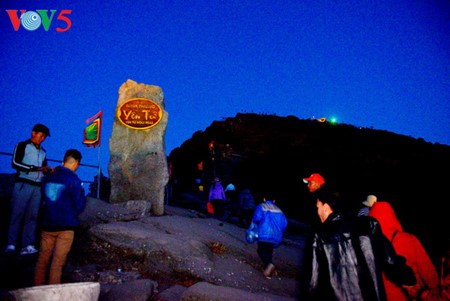 |
|
A stone stele marks "the Sacred Yen Tu Mountain Peak".
|
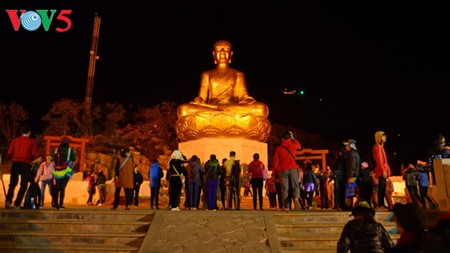 |
|
On An Ky Sinh peak, 900 meters above sea level, sits a statue of Buddhist King Tran Nhan Tong in a meditative pose. At 138 tons in weight and 15 meters tall, it is the largest bronze statue in Vietnam.
|
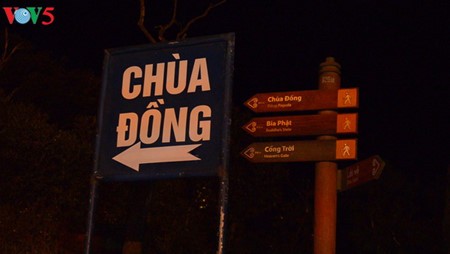 |
|
Directional signs along the roads show travelers the way to Yen Tu Mountain.
|
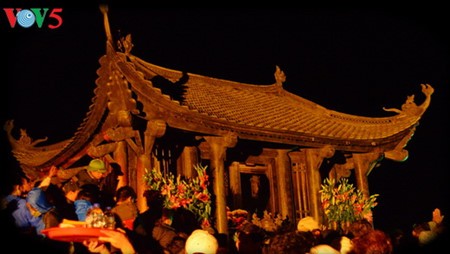 |
|
It takes about half an hour to climb to the Dong (Bronze) Pagoda. The pure bronze pagoda, 1,068 meters above sea level, has a deep abyss on one side and clings to the edge of a protruding cliff on the other.
|
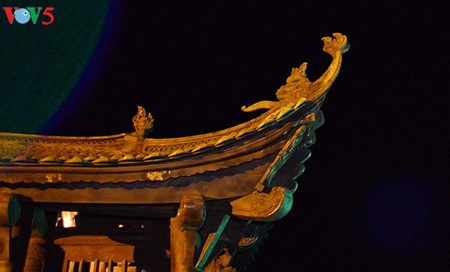 |
|
Dong (Bronze) Pagoda was built on the spot where King Tran Nhan Tong, eldest son of King Tran Thanh Tong, led his monastic life. The pagoda was built in the Post-Le Dynasty (15th century) by a concubine of a Trinh Lord. It has an iron frame and a bronze roof and is small in scale like a shrine. The Buddha statue, bell, and musical stone in the pagoda are all made of bronze.
|
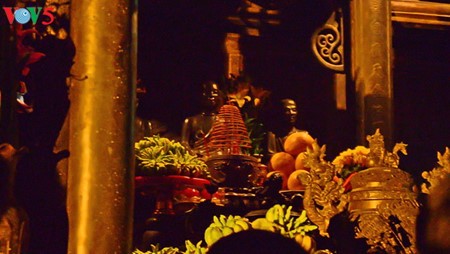 |
|
Inside the pagoda is a statue of Gautama Buddha and three statues of Tam Tổ Trúc Lâm, which are between 0.45 and 0.87 meters tall and sit on lotus-shaped lamp supports.
|
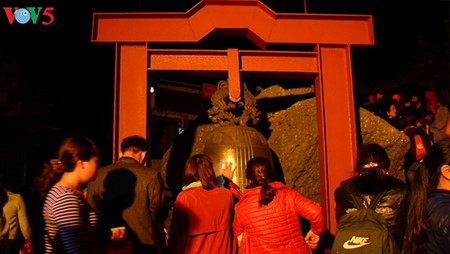 |
|
All the construction works, including the pagoda, the Buddha statues, and the bells, weigh more than 70 tons. They were cast from pure bronze and assembled on top of the mountain.
|
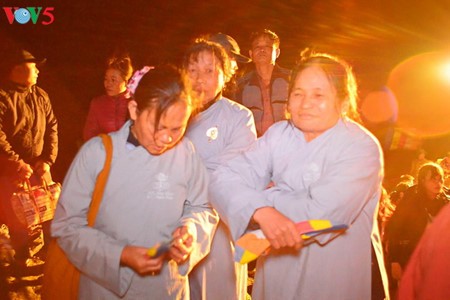 Dong Pagoda has long had a great spiritual importance. Every year, tens of thousands of visitors, including many Buddhist monks and nuns, make a pilgrimage to the Buddhist sanctuary on Yen Tu Mountain. Dong Pagoda has long had a great spiritual importance. Every year, tens of thousands of visitors, including many Buddhist monks and nuns, make a pilgrimage to the Buddhist sanctuary on Yen Tu Mountain.
|
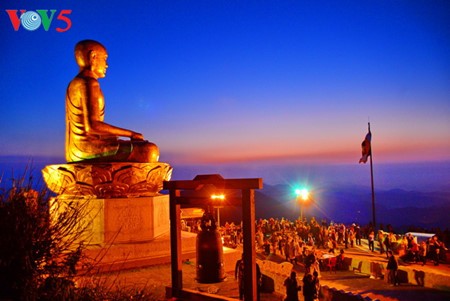
Breaking dawn seen from the top of Yen Tu Mountain
|
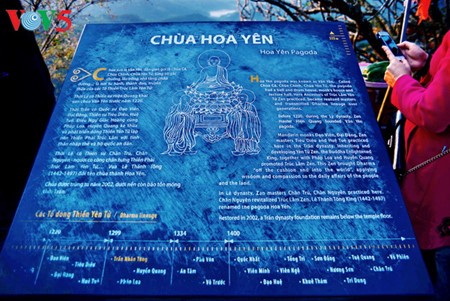 |
|
Visitors marvel at the natural landscape and historical relics.
|
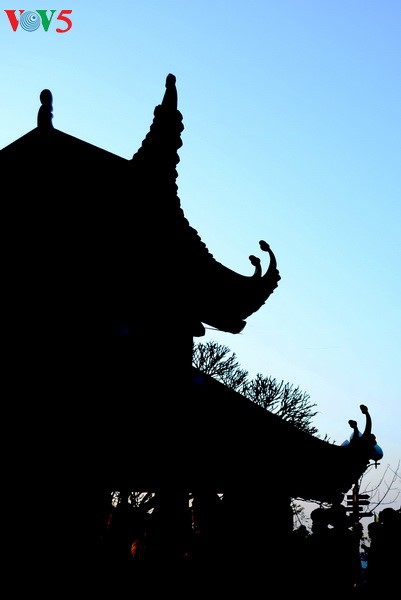
Hoa Yen Pagoda, built in the Ly Dynasty (11th century), is the biggest and most beautiful pagoda in the Yen Tu complex.
|
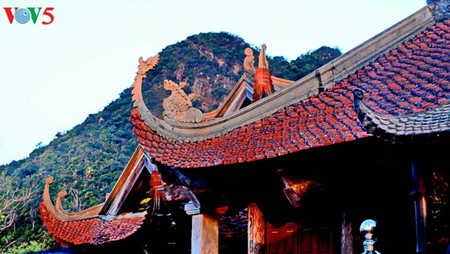 The ancient pagodas of Yen Tu welcome the first sunlight. The ancient pagodas of Yen Tu welcome the first sunlight.
|
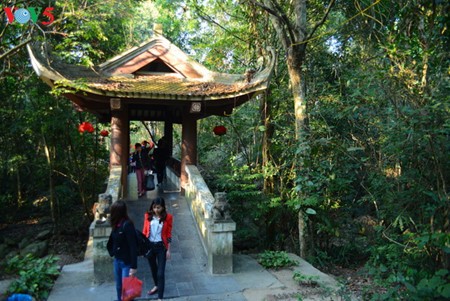 Other visitor attractions include Giai Oan (Vindication) Stream, Hoa Yen Pagoda, Mot Mai (One Roof) Pagoda, Bao Sai and Van Tieu Pagodas, and Hue Quang and Hon Ngoc Tower Gardens. The photo shows a stone bridge spanning Vindication Stream. Legend has it that this was the spot where King Tran Nhan Tong began to lead his religious life. It is now considered the threshhold between his lay and religious life. Other visitor attractions include Giai Oan (Vindication) Stream, Hoa Yen Pagoda, Mot Mai (One Roof) Pagoda, Bao Sai and Van Tieu Pagodas, and Hue Quang and Hon Ngoc Tower Gardens. The photo shows a stone bridge spanning Vindication Stream. Legend has it that this was the spot where King Tran Nhan Tong began to lead his religious life. It is now considered the threshhold between his lay and religious life.
|
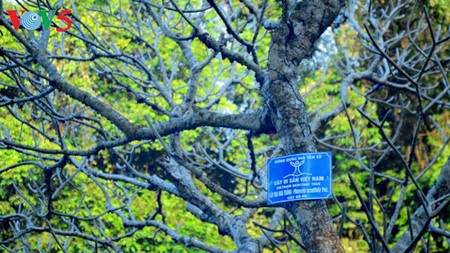 |
|
In addition to its Buddhist vestiges, Yen Tu is also famous for its primitive natural beauty. Yen Tu's one-hundred-plus trees have been officially declared a national forest. The sign says: "Yen Tu National Forest – Vietnam’s Heritage Trees: Big Frangipane with white flowers”.
|
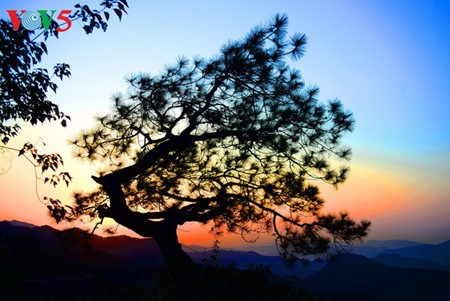 |
A pine tree in the glow of dawn
|
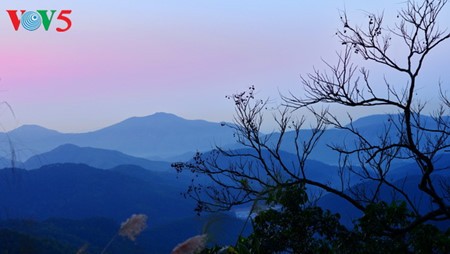 |
The natural landscape of Yen Tu looks like a watercolor painting
|
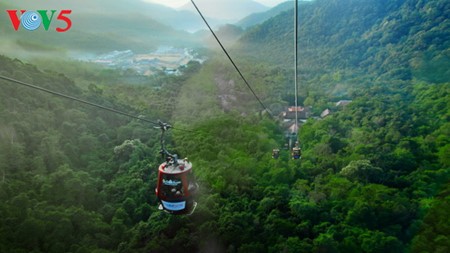 |
|
Don't forget that the cable car stops running at 6 p.m.
|